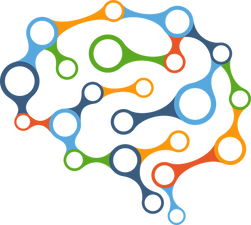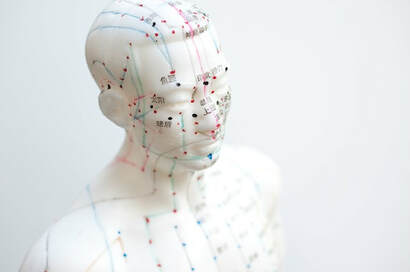A Brain Injury Program Professor's Advice for Recovery after TBI. (Use a New Measuring Stick!)3/30/2019 Heike Kessler-Heiberg, speech and language pathologist and associate professor at an acquired brain injury program shares her recovery advice for survivors, families, and healthcare providers.
0 Comments
 J Clin Neurosci. 2019 Mar;61:1-4. doi: 10.1016/j.jocn.2018.12.020. Epub 2019 Jan 4. AbstractTraumatic brain injury (TBI) is a clinical condition characterized by brain damage due to an external, rapid and violent force. TBI causes attention, memory, affectivity, behaviour, planning, and executive dysfunctions, with a significant impact on the quality of life of the patient and of his/her family. Cognitive and motor rehabilitation programs are essential for clinical recovery of TBI patients, improving functional outcomes and the quality of life. Various researches have underlined the possible effectiveness of innovative techniques, with regard to virtual reality (VR), during the different phases of rehabilitation after TBI. T his review aims to evaluate the role of VR tools in cognitive assessment and rehabilitation in individuals affected by TBI. Studies performed between 2010 and 2017 and fulfilling the selected criteria were found on PubMed, Scopus, Cochrane and Web of Sciences databases. The search combined the terms VR, assessment, rehabilitation and TBI. Our review has shown that VR has the potential to provide an effective assessment and rehabilitation tool for the treatment of cognitive and behavioral impairment on TBI patients. J Neuroeng Rehabil. 2019 Jan 25;16(1):14. doi: 10.1186/s12984-019-0489-9.
AbstractAfter traumatic brain injury (TBI), motor impairment is less common than neurocognitive or behavioral problems. However, about 30% of TBIsurvivors have reported motor deficits limiting the activities of daily living or participation. After acute primary and secondary injuries, there are subsequent changes including increased GABA-mediated inhibition during the subacute stage and neuroplastic alterations that are adaptive or maladaptive during the chronic stage. Therefore, timely and appropriate neuromodulation by transcranial direct current stimulation (tDCS) may be beneficial to patients with TBI for neuroprotection or restoration of maladaptive changes.Technologically, combination of imaging-based modelling or simultaneous brain signal monitoring with tDCS could result in greater individualized optimal targeting allowing a more favorable neuroplasticity after TBI. Moreover, a combination of task-oriented training using virtual reality with tDCS can be considered as a potent tele-rehabilitation tool in the home setting, increasing the dose of rehabilitation and neuromodulation, resulting in better motor recovery. This review summarizes the pathophysiology and possible neuroplastic changes in TBI, as well as provides the general concepts and current evidence with respect to the applicability of tDCS in motor recovery. Through its endeavors, it aims to provide insights on further successful development and clinical application of tDCS in motor rehabilitation after TBI.  J Head Trauma Rehabil. 2019 Feb 27. Abstract OBJECTIVE:We conducted a longitudinal cohort study comparing the effect of acupuncture on the risk of dementia in Taiwanese individuals with traumatic brain injury (TBI). DESIGN AND PARTICIPANTS:A national health insurance database was used to identify 15 440 newly diagnosed TBI patients 20 to 70 years old between 1998 and 2007. Of the identified patients, 6308 received acupuncture following the onset of TBI (acupuncture users) and 9132 patients did not receive acupuncture (nonacupuncture users). MEASURES:All enrollees were followed until the end of 2012 to record incident cases of dementia. A Cox proportional hazards regression model was used to compute adjusted hazard ratios for the relationship of acupuncture use with dementia. RESULTS:During the follow-up period, 249 acupuncture users and 810 nonacupuncture users developed dementia, corresponding to incidence rates of 6.11 and 9.64 per 1000 person-years, respectively. Use of acupuncture was significantly associated with a lower risk of dementia. Those who received more than 5 sessions of acupuncture benefited most from it. CONCLUSIONS:Adding acupuncture to the clinical management of patients with TBI may benefit these patients by decreasing their risk of developing dementia. Source: Acta Scandivica Psychiatrica "I had to learn to do everything when I woke up. It was starting from scratch again." Learn how brain injury survivor Cheryl met the challenges of her TBI, which occurred after she had been living with Multiple Sclerosis. Her advice: "Lean on those in your life." Hear about the importance of peer support, a faith community, and becoming a brain injury advocate. Listen to her favorite saying at the end of the video. ----- Dr. Dan Gardner’s YouTube and Podcast channels do NOT offer medical advice. You should not rely on this information as a substitute for, nor does it replace, professional medical advice, diagnosis, or treatment. See full Disclaimer: http://bit.ly/dgdisclaimer ----- **SUBSCRIBE FOR MORE VIDEOS ** *Interviews of brain injury survivors, family, and healthcare treaters *Your Peripheral Brain (assistive technology tips)* SUBSCRIBE TO VIDEOS http://bit.ly/tbirecovery-subscribe **SUBSCRIBE TO PODCAST** https://dangardner.podbean.com/ **SUBSCRIBE TO NEWSLETTERS** Traumatic Brain Injury Recovery Updates http://bit.ly/tbiupdates Your Peripheral Brain - Assistive Tech Updates http://bit.ly/dgtechtips A Speech and Language Pathologist's Brain Injury Recovery Advice (Work on Accepting the New Me!)3/14/2019  March 6, 2019 Source: European Association for the Study of Obesity Summary: The largest randomized clinical trial to study the effects of nutritional strategies on the prevention of major depressive disorder concludes that daily intake of nutritional supplements cannot prevent depression. MooDFOOD, the largest randomized clinical trial to study the effects of nutritional strategies on the prevention of major depressive disorder concludes that daily intake of nutritional supplements cannot prevent depression. Over 1000 participants who were overweight or had obesity and were identified as being at elevated risk for depression but who were not currently depressed, from four European countries -the Netherlands, the United Kingdom, Germany and Spain, took part in the study. Participants were randomized to either take nutritional supplements containing folic acid, vitamin D, zinc, selenium or to a pill placebo, and half of participants also received a behavioural lifestyle intervention intended to change dietary behaviours and patterns. Read more here.
Heike Kessler-Heiberg, speech and language pathologist and Associate Professor at the San Diego Community College District Continuing Education’s Acquired Brain Injury (ABI) Program, explains the program's practical educational courses and strong supportive culture. Heike talks about success examples, explains why this is her ideal work, and gives advice for healthcare treaters and brain injury survivors.
See http://www.sdce.edu/services/dsps/abi/ecc **SUBSCRIBE FOR MORE VIDEOS ** *Interviews of brain injury survivors, family, and healthcare treaters *Your Peripheral Brain (assistive technology tips)* SUBSCRIBE TO VIDEOS http://bit.ly/tbirecovery-subscribe **SUBSCRIBE TO PODCAST** https://dangardner.podbean.com/ **SUBSCRIBE TO NEWSLETTERS** Traumatic Brain Injury Recovery Updates http://bit.ly/tbiupdates Your Peripheral Brain - Assistive Tech Updates http://bit.ly/dgtechtips |
BLOGDan Gardner, MD Note: Please email me the topics which you'd me to discuss in this blog.
Note: These posts are for information only and are not endorsements of specific services or products.
Please consult your healthcare provider about information you find online. Dan Gardner, MD does not recommend or endorse any specific tests, physicians, products, procedures, opinions, or other information that may be mentioned on www.dangardnermd.com. Reliance on any information provided by www.dangardnermd.com is solely at your own risk. Archives
August 2021
Categories
All
|
Dan Gardner, MD. Psychotherapy and Psychoanalysis in San Diego
 RSS Feed
RSS Feed

